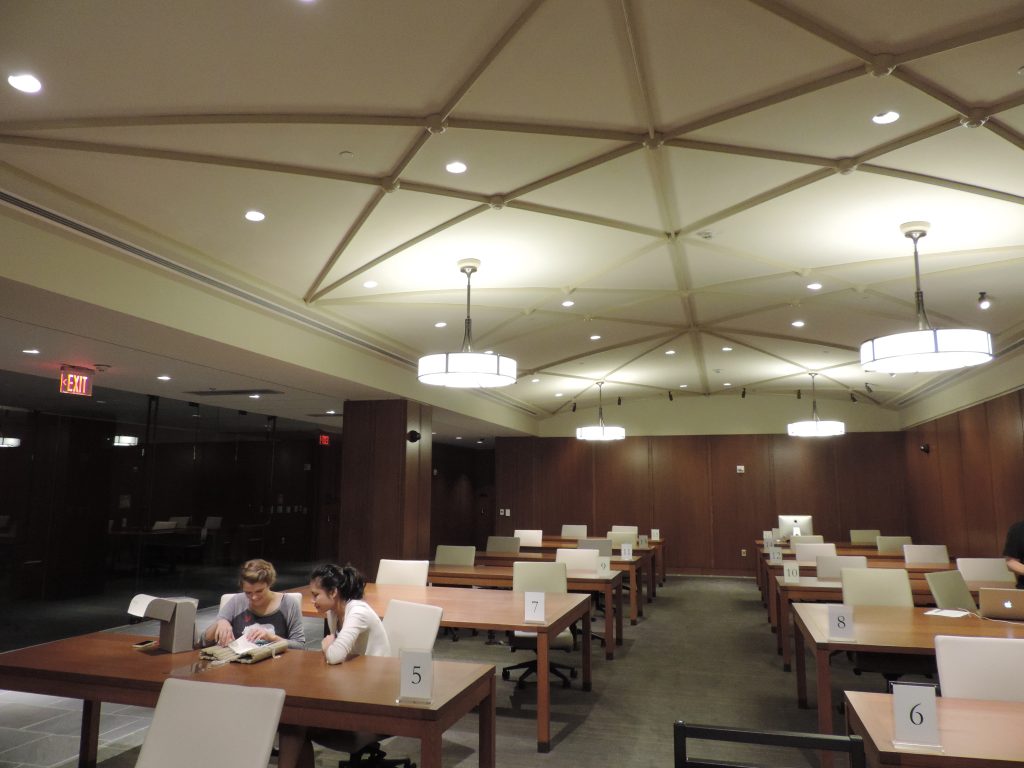What is a History Hackathon?
The term “Hackathon” traditionally refers to an event in which computer programmers collaborate intensively on software projects. But Duke University Libraries and the History Department are putting a historical twist on their approach to the Hackathon phenomenon. In this case, the History Hackathon is a contest for undergraduate student teams to research, collaborate, and create projects inspired by the resources available in the David M. Rubenstein Rare Book and Manuscript Library collections. Projects may include performances, essays, websites, infographics, lectures, podcasts, and more. A panel of experts will serve as judges and rank the top three teams. Cash Prizes will be awarded to the winning teams.
The History Hackathon will take place over a 72-hour period from October 23-25, in the Rubenstein Library and The Edge. All the guidelines, rules, and details may be found at the History Hackathon: a Collaborative Happening site.
- When: Friday, October 23rd to
Sunday, October 25th
- Where: Rubenstein Library and The Edge
- Register Today!
http://sites.duke.edu/historyhackathon/register/
Contact : HistoryHackathon@duke.edu
Sponsored by the Duke History Department, the Duke University Libraries, the David M. Rubenstein Library, and the Duke University Undergraduate Research Support Office.
Contributor: Susannah Roberson






